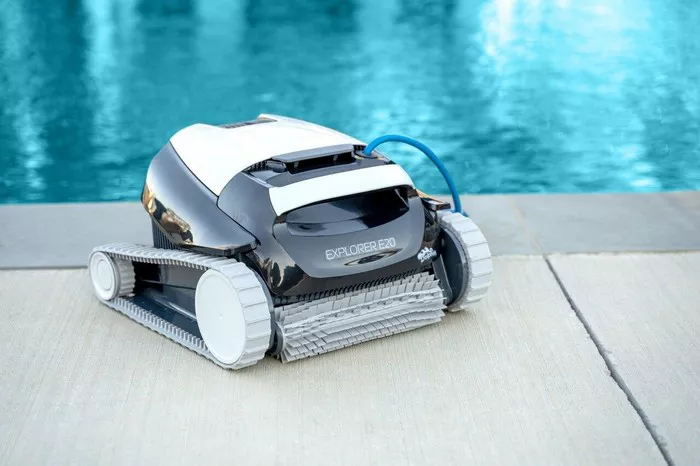Pool maintenance is a crucial aspect of owning a swimming pool, and one of the key components of this maintenance is keeping the pool clean. A pool sweeper, whether robotic, suction-side, or pressure-side, plays a vital role in this process. However, determining how often to run your pool sweeper can be a bit of a puzzle, influenced by various factors such as pool usage, debris accumulation, and the type of pool cleaner you have. In this article, we’ll delve into the recommended frequencies for running different types of pool sweepers and explore the factors that influence these frequencies.
Frequency Recommendations:
Robotic Pool Cleaners:
Robotic pool cleaners are known for their efficiency and autonomous operation. If you have a robotic pool cleaner, you have the luxury of setting it and forgetting it. Here are some frequency recommendations based on pool usage:
1. Frequent Usage: If you use your pool frequently, running the robotic cleaner once a day or every other day is advisable to ensure optimal cleanliness.
2. Moderate Usage: For moderate pool usage, running the robotic cleaner once every one to two weeks should suffice.
3. Infrequent Usage with Pool Cover: If your pool is not used often and has a cover, running the robotic pool cleaner once a month is recommended to prevent debris buildup.
Suction-Side Pool Cleaners:
Suction-side pool cleaners rely on the pool’s filtration system for suction and movement. Here’s how often you should run them:
1. Regular Cleaning Sessions: It’s advisable to run suction-side cleaners for 2 to 3 hours, 1 to 2 times per week. However, adjust the frequency based on the amount of debris and environmental conditions.
Pressure-Side Pool Cleaners:
Pressure-side pool cleaners use water pressure to move around the pool and collect debris. Here are some guidelines for their usage:
1. Efficient Cleaning: Pressure-side cleaners are efficient and typically complete a thorough cleaning cycle within 1 to 2 hours. Adjust the frequency based on the cleanliness of the pool and the amount of debris.
Factors Influencing Frequency:
1. Pool Usage: The frequency of pool cleaning depends largely on how often the pool is used. If you have a high volume of swimmers, you’ll likely need to run your pool sweeper more frequently to keep up with the debris.
2. Debris Accumulation: Keep an eye on the amount of debris falling into your pool. Factors such as nearby trees, windy weather, or landscaping can significantly impact debris accumulation. Adjust your cleaning frequency accordingly.
3. Seasonal Changes: Seasonal factors like falling leaves in autumn or increased pollen in spring can affect the cleanliness of your pool. Be prepared to adjust your cleaning frequency based on seasonal changes to maintain optimal pool conditions.
4. Environmental Conditions: Environmental factors such as windstorms or heavy rains can introduce large amounts of debris into your pool. After such events, it may be necessary to run your pool sweeper more frequently to restore cleanliness.
Maintenance Practices:
In addition to determining how often to run your pool sweeper, it’s essential to follow proper maintenance practices to ensure its longevity and efficiency. Here are some maintenance tips to keep in mind:
1. Regular Maintenance: Periodically empty the debris bag and rinse the cleaner to prevent clogs and maintain suction power.
2. Shocking the Pool: When shocking the pool with chemicals, remove the pool sweeper to prevent damage from the chemicals.
3. Storage: Store your pool sweeper properly when not in use to protect it from the elements. Avoid prolonged exposure to direct sunlight, and store it in a cool, dry place such as a garage or shed.
Cost Considerations:
While pool sweepers are valuable tools for maintaining a clean pool, it’s essential to consider the associated costs, both upfront and ongoing. Here are some cost considerations to keep in mind:
1. Electricity Usage: Some pool cleaners, especially those with booster pumps like pressure-side cleaners, can increase electricity usage. Consider the energy efficiency of your pool sweeper and factor in the potential increase in electricity costs.
2. Repairs: Regular maintenance of your pool sweeper can help prevent costly repairs down the line. Address any issues promptly and perform routine inspections to identify potential problems early on.
Conclusion
By understanding the recommended frequencies for running your pool sweeper and considering factors such as pool usage, debris accumulation, and maintenance practices, you can ensure that your pool remains clean and inviting for years to come. Remember to adapt your cleaning routine based on changing conditions and invest in proper maintenance to maximize the lifespan of your pool sweeper.

